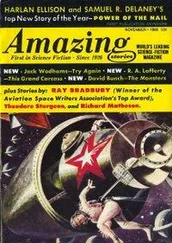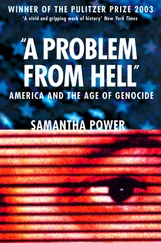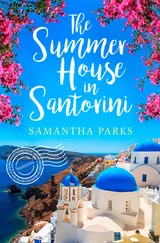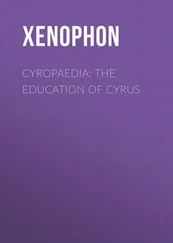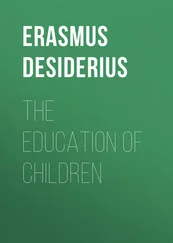In January of 2017, I concluded eight years in the Obama administration and became an outsider once more. As I tried to get my bearings, President Obama’s successor began to turn the country in a radically different direction. Like many Americans, I vacillated between feelings of disbelief, outrage, and anxiety about the future. I had long taken for granted the importance of individual dignity, the richness of American diversity, and the practical necessity of global cooperation. Yet suddenly, these core values were under assault and far more vulnerable than I had recognized.
I set out to write a book that explored what I had learned thus far in my life and career. I returned to my early childhood in Ireland, the circumstances that brought me to the United States, my high school years in Atlanta, Georgia, and my time as a journalist in Bosnia. I delved into experiences that had moved and even altered me—as a human rights advocate, on a presidential campaign, in the White House, and at the UN. And I examined painful losses and setbacks, both in my private life and in the public glare.
We make sense of our lives through stories. Regardless of our different backgrounds and perspectives, stories have the power to bind us. In my Irish family, being able to tell a lively story has always been a means of fitting in and drawing people together. As a war correspondent, storytelling was the most effective tool I had to bridge the vast space between those suffering the wounds of distant conflict and my American readers. As a diplomat, when foreign officials refused to budge in negotiations, I would try to shake up stale debates by sharing authentic, firsthand stories about the many people who were being affected (for good and bad) by our decisions. And as a woman in national security and the mother of two young children, I used stories to make bearable the tensions inherent in balancing a demanding career and a fulfilling family life.
This story is one of sorrow, resilience, anger, solidarity, determination, and laughter, sometimes jumbled together. This is also a story of idealism—where it comes from, how it gets challenged, and why it must endure.
Some may interpret this book’s title as suggesting that I began with lofty dreams about how one person could make a difference, only to be “educated” by the brutish forces that I encountered. That is not the story that follows.

 1
1 
IRELAND
What right has this woman to be so educated?”
My mother, Vera Delaney, had not broken any laws, yet she seemed to be on trial. As she made the case for why she should be allowed to take my brother and me to America, her fate appeared contingent upon the whims of the Irish judge who posed this question.
I was eight; my brother, Stephen, was four. Neither of us was present that day in the Dublin courtroom. But the story of what transpired there is so emblazoned in my psyche that I can see the judge’s face, shaped like the map of Ireland, his skin blotted with what looked like my granny’s blush. I can visualize the mahogany wood paneling behind the bench where he presided. I can smell the boiled ham that wafted off of his black robes. I can even make out the intricate white threads of his juridical wig.
I’ve often wondered how my mother channeled her anger: Did she start to respond to the judge’s provocation, only to get a knee under the table from her lawyer? Did she feel her cheeks burn—as mine are prone to do—despite the chill of the courtroom? I imagined the voice inside her head: “Keep it together, Vera. He wants you to react. Don’t give him an excuse to deny you custody.”
It was far from inevitable that my mother, the person I have always admired most in this world, would end up “so educated.” She came of age at a time when less than 10 percent of married women in Ireland were part of the workforce. Her father, a policeman in Cork City, was an incurable, high-stakes gambler who bet his paychecks on horse and dog racing. My mother, her four sisters, and her younger brother grew up under the constant threat of foreclosure. While none of her three older siblings went to college, my mother decided early on that she would be the first of the Delaney children to do so—indeed, she would become a doctor.
Because the Catholic girls’ school my mother attended did not offer science courses, she had a problem. When she tried to apply to the University College Cork’s medical program, the registrar told her she lacked the background to manage the curriculum. Undeterred, my mother registered anyway. When she got home, one of her sisters lit into her because of the lengthy program’s cost. My mother responded by dumping her plate of bacon, cabbage, and mashed potatoes on her sister’s lap. But she marched back to the college and, livid but shamed, changed her registration to the shorter Bachelor of Science program. After earning that degree, she went on to pursue a PhD in biochemistry in London. But caring for patients was what my mother had always wanted and would never stop wanting; while writing her dissertation, she finally decided to apply to medical school. Thirteen years after first attempting to enroll, she achieved her lifelong dream of becoming a medical doctor.
Yet in that courtroom years later, my mother was forced to answer for her career—for being “so educated”—because she was trying to move with her children to the United States, a country she had never visited, in order to get advanced training in her area of specialization, kidney transplantation.
She was also hoping to run away with the man she loved—a man who wasn’t my father.
MY DAD, JIM POWER, was an epic figure—brilliant, dashing, and charismatic, yet intimidating and witheringly sharp-tongued. At six foot five he towered over his Irish contemporaries. Even as a child, I could tell he was the man in the room that people most wanted to please.
My parents met in London, where my mother was studying medicine and my dad was working as a dentist. Mum first spotted him leading a sing-along for a group of Irish exiles in the Bunch of Grapes pub in Knightsbridge. After long fending off girlfriends, my dad pursued her avidly.
Mum was a slender, stylish young woman with a lively sense of play, who could place a tennis serve or hit a squash forehand better than almost all her male peers. She liked my father’s constant teasing, which kept her off balance. She was amazed by his talent for the piano and his ability to launch into whatever songs the bar patrons requested.
My father initially encouraged and helped subsidize Mum’s medical school pursuits. A scratch golfer, he applauded how quickly she picked up his sport, and cheered her on as she ascended the ranks of British athletics in squash. As a teenager and college student, she had played competitive tennis and field hockey—first for her home province of Munster and later for Ireland. At squash, she was relentless: speedy to the front of the court and agile from side to side. When Mum was off in the library or on the squash court, Dad was at the pub, boasting to his friends about her latest feats. After an impassioned courtship, they wed in September of 1968.
“This is the third of my children getting married this year,” her father told his mother, “and I would not put my money on this one.” For a man who bet on anything and everything, this was saying something.
Читать дальше
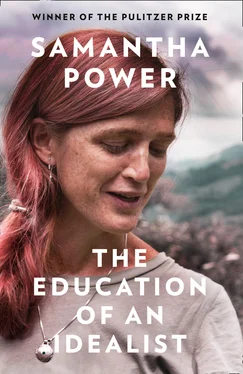

 1
1 

